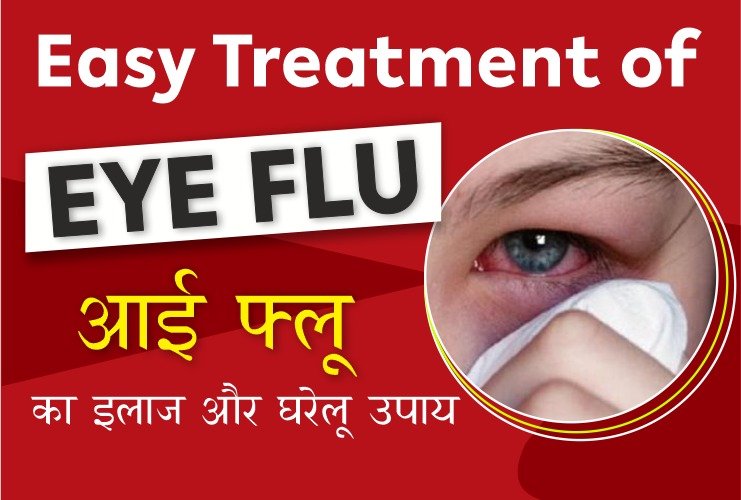Common Eye Diseases

In north India, Seasonal eye allergy (viral conjunctivitis) is a common occurrence. Scores of people from all age groups are affected by seasonal allergies or Eye flu. Eye flu is associated with moderate to severe pain tenderness, especially at certain times of the year when air-borne allergens are in abundance. To stay protected from eye allergy, the recommended mantra is to prevent and understand eye flu. Learning about the signs, cures, and ways to avoid getting eye flu can make the lives of people who have it a lot better. We spoke to Dr Kashish Gupta – one of the best eye doctors at Bathinda Max Healthcare. We posed him several pertinent queries about eye flu. We then created this complete guide that answers the most common questions, including what eye flu is. What are the most common signs? How can eye infections be treated effectively, and what medicines are best for managing eye flu or seasonal allergy conditions?
What is Eye Flu?
Eye flu constitutes inflammation of the conjunctiva, the transparent membrane covering the white area of the eye and the inside of the lids. It is referred to as viral conjunctivitis. This disease can worsen from viruses that cause colds, flu, and other respiratory ailments, which is why it is more common at certain seasons of the year.
What are the Symptoms of Eye Flu (viral conjunctivitis)?
Eye flu symptoms often affect both eyes, with sore eye symptoms being mild to severe. Typical eye flu symptoms include
- Swollen eyelids
- Watery discharge
- Redness in the white zones of the eyes
- Itchiness and irritation
- Sensitivity to light
- A gritty sensation, as if there's something in the eye
“It is also usual for those who have the eye flu to experience symptoms of sore eyes. A burning feeling, weariness of the eyes, and greater discomfort when staring at light sources are some of the symptoms that the patient may experience”. Says Dr Kashish Gupta of the Max Healthcare.

What is the best treatment for Eye flu?
Treatment for eye flu primarily focuses on relieving symptoms, as the condition often resolves on its own within a week or two. Here are some effective eye flu treatment strategies:
- Cold Compresses: Applying a cold, wet cloth to your eyes several times a day can help reduce swelling and discomfort.
- Artificial lubricants ( Tear Relplenshing): Over-the-counter lubricating eye drops can alleviate dryness and irritation.
- Stop using Contact Lenses: Switching from contact lenses to glasses for a short time will keep your eyes from getting more irritated.
- Maintain Hygiene: To stop the infection from spreading, wash your hands often and don’t touch your eyes.
- Eye Flu Medicine: There is no specific antiviral medicine for treating viral conjunctivitis or “eye flu.”
Eye flu medicine :
Some eye drops & medications that are helpful in mitigating the eye flu symptoms.
- Antihistamine or an anti-inflammatory: Eye drops with an antihistamine or an anti-inflammatory can help ease itching and swelling.
- Pain killers: over-the-counter pain relievers like ibuprofen or paracetamol to help contain pain & tenderness
Note: Always consult your eye doctor if symptoms persist or the condition worsens.
How do we prevent ourselves from getting Eye Flu?
While it’s challenging to avoid altogether the viruses that cause eye flu, specific preventive measures can reduce your risk:
- Hand Hygiene: Frequent hand washing is crucial, especially after touching potentially contaminated surfaces.
- Avoid Touching Your Eyes: This can prevent the spread of the virus to your eyes.
- Use of Personal Items: Avoid sharing towels, pillows, or eyewear with others to limit the spread of infection.
- Stay indoors if infected: Reducing contact with others when you’re ill can prevent the spread of viral infections.
Managing general flu symptoms can also indirectly help with eye flu. Ensuring adequate rest, staying hydrated, and taking prescribed flu treatment can support your immune system in fighting off the virus more effectively.
Blog Summary: Prevention is the best cure for eye flu, as viral conjunctivitis is very contagious
Understanding the symptoms, treatments, and preventative measures of seasonal eye allergies (viral conjunctivitis), sometimes known as “eye flu,” will help you better manage the impact that this condition has on your day-to-day life. Seasonal eye allergies can be an unpleasant condition. “Despite the fact that over-the-counter medications have the potential to alleviate symptoms, it is crucial to take consultation from an eye specialist in order to ensure accurate diagnosis and efficient treatment,” says Dr. Kashish Gupta, Head of Ophthalmology at Max Hospital Bathinda Punjab. Through the implementation of preventative measures pertaining to hygiene and care, we are able to lessen the impact of eye flu and ensure that our ocular health is preserved throughout the year. On our YouTube channel @DrKashishGupta , wach our video on eye flu and its efficient management.

